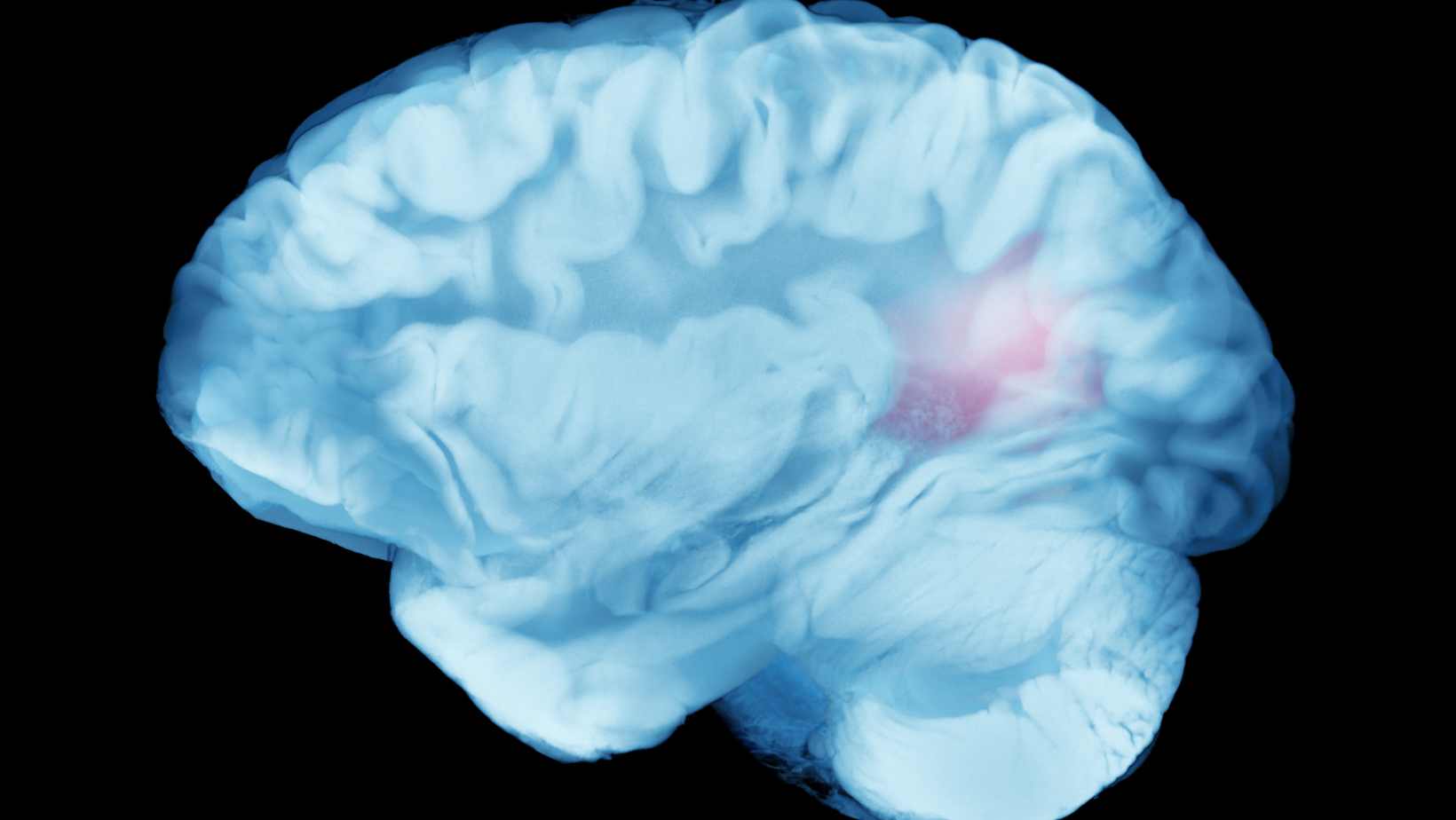Have you ever wondered how your body weight could affect your brain? What if carrying a few extra kilos around your waist was silently raising your risk of getting stroke?
It might surprise you to know that being overweight isn’t just about how you look; it deeply affects your blood vessels, your heart, and most importantly, your brain. In this blog, we will explore how body weight plays a crucial role in increasing your risk of getting stroke, backed by facts and practical health advice.
We will look at what happens inside your body when you’re overweight, the real dangers it brings, and what you can do today to lower your chances. Let’s break this down together in a way that’s easy to understand.
Table of Contents
ToggleWhat is a Stroke?
A stroke happens when blood can’t get to a part of your brain. This stops your brain cells from getting oxygen. When that happens, those cells start to die quickly.
There are two major types of strokes:
- Ischemic stroke: Caused by a blocked artery. This is the most common type and makes up about 87% of all strokes.
- Hemorrhagic stroke: Caused by bleeding in the brain due to a burst blood vessel.
According to the World Health Organization, stroke is the second leading cause of death worldwide. It’s also a major cause of disability.
Understanding this helps us realize why weight matters so much. Stroke isn’t just an “older person” problem. It can happen at any age, especially when certain risk factors like obesity are present.
Read: 10 Healthy Habits for a Stronger Heart
What Role Does Weight Play in Brain and Heart Health?
Let’s look at how extra weight impacts key body systems that keep your brain safe:
When someone is overweight, the body has to work harder to pump blood. That causes pressure to rise. High blood pressure can damage the arteries that supply your brain.
Here’s how being overweight increases the risk of getting stroke:
- Blood pressure and stroke: Extra fat tissue means your heart needs to pump more blood, which increases pressure in the arteries.
- Cholesterol levels and brain health: Being overweight often means higher LDL (bad cholesterol), which clogs arteries.
- Blood sugar: Extra weight raises the chance of insulin resistance, which can lead to diabetes.
- Inflammation and vascular health: Fat cells release chemicals that cause inflammation, damaging the inner walls of blood vessels.
Also, where the fat sits matters. Abdominal fat (belly fat) is more harmful than fat in other areas because it increases cardiovascular risk more directly.
How Strong is the Link Between Obesity and the Risk of Getting Stroke?
This isn’t a loose connection. Medical research proves that weight and stroke are tightly linked.
Here’s what studies say:
- According to the CDC, people with obesity are 2.7 times more likely to have a stroke.
- The Framingham Heart Study found that for each 1-point increase in BMI, stroke risk goes up by 6%.
- A 20-year study in Europe showed that midlife obesity doubles the risk of getting stroke later in life.
This connection isn’t just a theory, it’s well-documented and powerful.
Does a High BMI Always Mean Higher Stroke Risk?
BMI (Body Mass Index) is a rough way to measure if someone is overweight.
Here’s what the ranges mean:
- Underweight: less than 18.5
- Normal weight: 18.5 to 24.9
- Overweight: 25 to 29.9
- Obese: 30 and above
But it’s not just about the number:
- Some people with “normal” BMI still have high blood pressure or high cholesterol.
- This is called metabolically unhealthy normal weight.
So while BMI gives us a guideline, it doesn’t tell the whole story about your overweight stroke risk.
Can Overweight Influence Your Risk Of Getting Stroke??
Obesity is on the rise in the adult population. As per a report, the prevalence of obesity has increased from 2.2 % to 5.1 % from 1998 to 2015. The study further stated that an estimated 27.8 % of all Indians would be overweight by 2030. Several published studies from 1983 to 2011 have examined the relationship between obesity and cardiovascular diseases and found it positive. Few essential things emerged from the research. Middle-aged people are more at risk of stroke than older individuals. Obesity and increased risk of stroke were also heightened by other associated factors like diabetes mellitus and hypertension.
Does overweight cause stroke?
Obesity increases the risk of stroke by several factors that include sleep apnoea, hypertension, and diabetes mellitus. Adipose tissue in our body plays an important role immunologically and endocrinologically. With weight gain, the tissue undergoes changes that include infiltration with inflammatory cells and lesser secretion of adiponectin, a protein hormone with positive vascular effects. Both the inflammation and reduced adiponectin lead to the build-up of insulin resistance. Obesity and the resultant insulin resistance condition may also stimulate other factors that lead to stroke.
How Can You Know If You’re at Risk?
Many people don’t realize how close they are to a medical emergency.
Here’s how you can tell if you may have a higher risk of getting stroke:
- Your BMI is above 25
- Your blood pressure is over 130/80
- You have a family history of stroke, diabetes, or heart disease
- You often feel fatigued, breathless, or get headaches
Regular checkups can reveal early signs. Ask your doctor to check your cholesterol, blood sugar, and do a carotid artery scan if needed.
Overweight Risk Of Getting Stroke
Being overweight to a large extent may be influenced by heredity. Your genes play a significant part in how food is digested, converted into calories, assimilated and how your body uses up the calories. However, the following factors also significantly influence obesity
- Lifestyle habits: A calorie-rich diet with more fried foods, sweetened beverages, oversized portions, and fast foods but lacking in fruits and vegetables is a significant contributor to weight gain. A sedentary lifestyle makes you take in more calories than you burn, an important factor in weight gain.
- Certain medications and diseases: Overweight causing stroke may occur due to hormonal imbalance caused by certain conditions that lead to weight gain. Medications such as antidepressants, steroids etc. may also lead to weight gain
- Social factors: If people you interact with are obese and have unhealthy eating habits, you are more likely to become obese as it will easily be accepted. Or it may be possible that you do not have access to healthy foods and safe places to exercise like parks making it challenging to prevent obesity.
- Age: Most people tend to reduce physical activities as they age. Aging brings on hormonal changes and reduced muscle mass. This reduces metabolism and a lesser need for calories making it harder to stave off extra weight.
- Other factors: Lack of sleep and stress make people crave comfort foods that are generally calorie-rich.
Is the Risk Different for Men and Women?
Yes, gender plays a role.
- Women often store fat in hips and thighs, while men carry more belly fat.
- After menopause, women tend to gain more abdominal fat, which increases their overweight stroke risk.
- JAMA research shows that women with obesity are 3x more likely to suffer a stroke than women with a healthy weight.
Can Children and Teens Also Be at Risk If They Are Overweight?
Sadly, yes. Childhood obesity has become a major concern.
- Kids with high BMI show early signs of artery thickening.
- These are warning signs for future body weight and stroke problems.
- Early prevention is key to breaking this cycle.
What Are Effective Ways to Reduce Stroke Risk if You’re Overweight?
Simple lifestyle changes can go a long way. Here are stroke prevention tips that actually work:
| Strategy | Stroke Risk Reduction % | Notes |
|---|---|---|
| DASH Diet | Up to 27% | Focuses on low sodium, fruits, veggies |
| 150 min/week exercise | 30-35% | Improves BP, sugar control |
| Weight loss of 5-10% | 20%+ | Major reduction in all risk factors |
Other changes to reduce stroke and high BMI problems:
- Quit smoking
- Cut back on alcohol
- Sleep 7-9 hours
- Manage stress using meditation or hobbies
What can you do?
Treating obesity involves weight management and lifestyle changes for losing weight and maintaining it successfully. It consists in combining physical activity with a healthy diet and regular exercise. Losing weight may be challenging but is the best way to reduce the risk of secondary diseases, especially stroke. Excellent services are offered by one of the top 5 neurologist in Patna Dr. Chandril Chugh , neuro physician in Jaipur, and brain specialist doctor in Faridabad. Also avail the benefits of the best neurologist doctor in Jaipur and a top neurosurgeon in Patna. You can also book an online neurologist consultation or neurologist online chat.
FAQs
Can stroke happen at a young age due to obesity?
Yes. More young adults are having strokes today than 20 years ago, and obesity and stroke are major links. If you’re in your 30s or 40s with high BMI, talk to Dr. Chugh today.
How fast does weight loss impact stroke risk?
Studies show that within 3-6 months, people who lose just 5-10% body weight see major drops in blood pressure and cholesterol, reducing the risk of getting stroke.
Are stroke symptoms different in overweight people?
Sometimes. They may be brushed off as fatigue or sleep issues. Always watch for face drooping, arm weakness, or slurred speech.
Is belly fat more dangerous than overall weight?
Yes. Belly fat, or visceral fat, is directly tied to fat deposits in arteries and high inflammation. It increases your risk of getting stroke more than fat stored elsewhere.
Do weight loss drugs help in lowering stroke risk?
In some cases, yes. Medications like GLP-1 agonists can lower weight and blood sugar. But they should be used under a doctor’s care. Book a consultation with Dr. Chugh to discuss options.
Can thin people have a stroke too?
Yes. Thin people with metabolic syndrome (high BP, sugar, cholesterol) can still have strokes. It’s about what’s happening inside the body.
What is the stroke belt and does obesity affect regional risk?
The “stroke belt” includes U.S. states like Mississippi and Alabama. High obesity rates in these regions raise the risk of getting stroke significantly.

This article is medically reviewed by Dr. Chandril Chugh, Board-Certified Neurologist, providing expert insights and reliable health information.
→ Book a consultation to discover which remedies suit your needs best.
About Author | Instagram | YouTube | Linkedin




